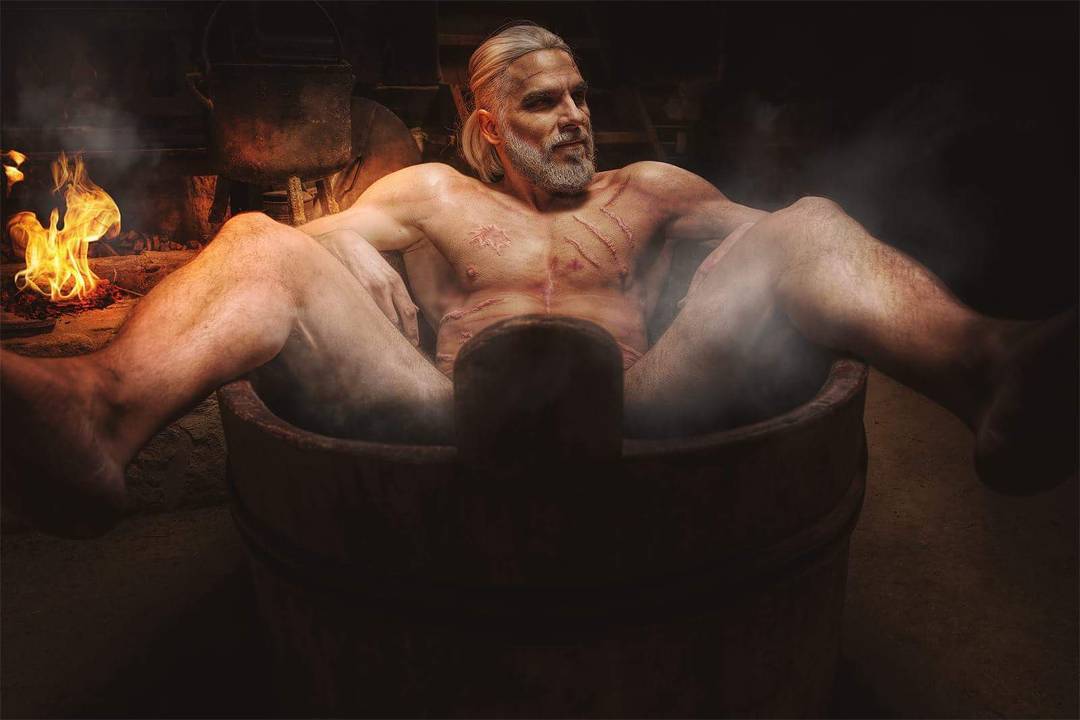The Witcher author refused a profit-sharing deal with CD Projekt: 'It was stupid'
Andrzej Sapkowski wanted his money up-front.

Most gamers know Geralt, The Witcher, as the lead character of CD Projekt's hit fantasy RPG series of the same name. But he actually originated in a series of short stories and novels written by Polish author Andrzej Sapkowski, dating back to 1992. Sapkowski initially intended to write just one novel, he said in a lengthy and very entertaining interview with Eurogamer, but the acclaim it brought led him to make more, eventually resulting in the sprawling Witcher saga—and interest from videogame developers.
It was actually Adrian Chmielarz's first studio, Metropolis Software, who first approached Sapkowski about making a game based on the novels, but it was CD Projekt that ultimately got the job done. He said he didn't remember the details of the deal, but "they brought a big bag of money," and that was good enough for him. And since he didn't expect the project to amount to much, and believed that videogames, in a broad sense, "are stupid" anyway, he signed a cash-up-front deal and sent them on their way. After that, he had no contact with the studio, much less input on the game's development.
Despite Sapkowski's lack of faith, the game—and the trilogy—became a hit. (Remember when Polish Prime Minister Donald Tusk gave US President Barack Obama a copy of The Witcher 2: Assassins of Kings to commemorate his visit to the country?) And the resulting shift of perceived creative ownership, outside of Poland, from the author to the game studio clearly irritates him: Recalling an incident when he was asked if the books are based on the games, he said, "I can remember my reaction: I know many bad words and I used all of them, in many languages."
But the real bite is that he can't even take solace from the obviously lucrative royalties, because there are none. "I was stupid enough to sell them rights to the whole bunch," Sapkowski said. "They offered me a percentage of their profits. I said, 'No, there will be no profit at all—give me all my money right now! The whole amount.' It was stupid. I was stupid enough to leave everything in their hands because I didn't believe in their success. But who could foresee their success? I couldn't."
To his credit, he doesn't begrudge CD Projekt its success, saying, "The game is made very well, and they merit of all of the beneficiaries they get from it." He'll even sign game boxes when asked, because Witcher fans are fans no matter how they came to it, and it would be "very impolite" to turn them away. (You probably still shouldn't ask him if that's where he got the idea for the books, though.) The whole interview is a lot of fun, even if you're not really a Witcher fan—and especially if you are. Catch it all at Eurogamer.
Keep up to date with the most important stories and the best deals, as picked by the PC Gamer team.

Andy has been gaming on PCs from the very beginning, starting as a youngster with text adventures and primitive action games on a cassette-based TRS80. From there he graduated to the glory days of Sierra Online adventures and Microprose sims, ran a local BBS, learned how to build PCs, and developed a longstanding love of RPGs, immersive sims, and shooters. He began writing videogame news in 2007 for The Escapist and somehow managed to avoid getting fired until 2014, when he joined the storied ranks of PC Gamer. He covers all aspects of the industry, from new game announcements and patch notes to legal disputes, Twitch beefs, esports, and Henry Cavill. Lots of Henry Cavill.

